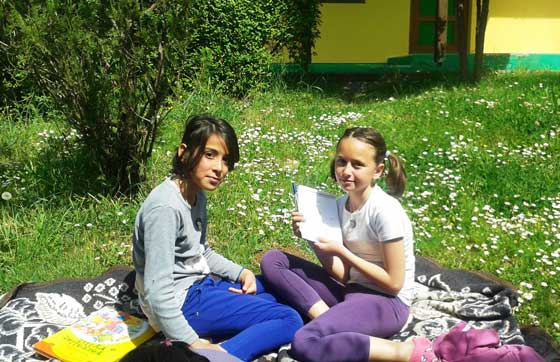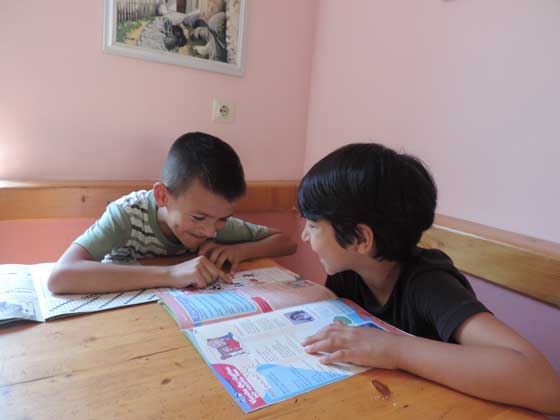Many families have recently moved to the area
.jpg)
Tirana is the capital of Albania, and home to around 420,000 people.
Due to the lack of employment in rural areas, many families have been forced to move to Tirana and its surroundings to find work. Many of the children who live in the area have moved here recently, and have lost their friends and extended family. Families often face social and economic problems as they adapt to their new surroundings.
Approximately 14 per cent of the people living in Tirana, and its surroundings are poor. Some of the worst affected include single-parent households, families with many children and those with a Roma background.
Children are at risk and need protection
Although the Albanian government has become increasingly engaged in protecting children, the lack of economic resources means that many children are still excluded from government initiatives. Many families struggle to meet their basic needs, often depending on the help of non-governmental organisations.
Roma continue to face social discrimination and suffer from especially high levels of unemployment. Many children of Roma background do not receive an education because their families cannot afford to send them to school. In Tirana, some of these children can be seen on the streets: working, gathering rubbish or begging for money.
In a city where violence is widespread and there is a real threat of children becoming victims of human trafficking rings or criminal gangs, it is particularly important to keep children safe. Families are in need of support so that they can protect their children.
Children who can't live with their parents are often placed in care in institutions. These aren't able to provide the individual care that children need to develop healthily. The government is working to change this and wants to ensure that more children are cared for in family-like settings.
SOS Children's Village Tirana
.jpg)
We started working in Tirana in 1995. We are based in Sauk, a village of approximately 6,000 inhabitants which is about four kilometres south-east of Tirana.
Strengthen Families: In 2003, we launched a family strengthening programme, which reaches children who are at risk of losing parental care throughout different districts in Tirana. Together with local agencies, we support families in the community so that they can take good care of their children. We help them gain access to essential services such as education, nutrition and health. In addition, our organisation offers counselling and psychological advice. Local families are also given information regarding their legal rights and how to best find employment. At the end of 2015, we were supporting over 150 families and 400 children.
Care in families: If, in spite of all support, children lose the care of their parents they can find a new home in the SOS families. Up to 132 children can grow up here in the care of SOS parents. We aim to ensure that brothers and sisters stay together. Wherever possible, while the children are in our care, we strengthen their families of origin and in some cases they can all be reunited again.
Education: The access to quality education is one of our central aims. The children attend the nearby kindergartens, schools and after-school activities, alongside local children. This ensures that they are fully integrated into the community from a young age.
We also run a vocational high school in conjunction with the Albanian Ministry of Social Welfare and Youth. Young adults can train to do jobs in Information Technology.
Support for young people: Young people are supported by professional counsellors while they move into shared housing and learn to live independently. The young people are also actively involved in different advocacy projects.